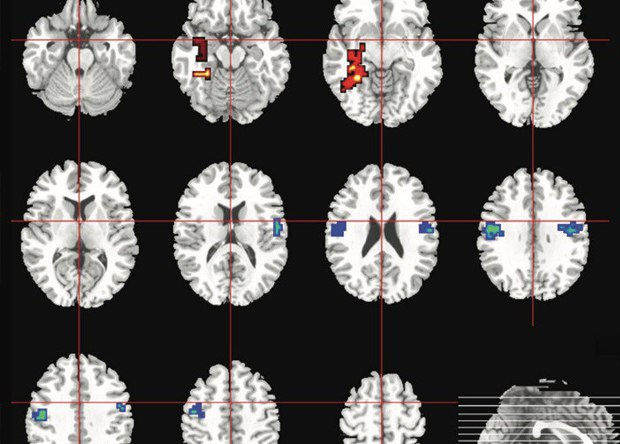Cannabidiol Restores Brain Function in Psychosis
American scientists have discovered, through an fMRI experiment, how cannabidiol (a non-psychoactive cannabinoid) helps alleviate symptoms of psychosis. According to an article published in JAMA Psychiatry, volunteers at high risk of developing psychosis who took cannabidiol showed increased activity in certain brain regions that were “weakened” in patients from the placebo group.
The psychoactive component of marijuana, tetrahydrocannabinol (THC), is often associated with the development of psychosis symptoms, mainly due to its effects on dopamine and glutamate receptors in the brain. For this reason, marijuana is not recommended for people at risk of psychotic disorders. However, cannabidiol, which is structurally similar to THC, has antipsychotic properties: it reduces anxiety and helps organize thought processes.
Until now, it was unclear exactly how cannabidiol’s antipsychotic properties manifest, particularly how it regulates brain activity in patients at high risk for psychosis. Psychosis is believed to significantly affect the function of the medial temporal lobes, the striatum, and the midbrain—parts of the brain’s dopaminergic system, which plays a key role in thinking and emotional regulation. To study this mechanism, researchers led by Sagnik Bhattacharyya from the Institute of Psychiatry, Psychology & Neuroscience at King’s College London conducted an experiment involving 33 people at high risk for psychosis and 19 healthy participants as a control group.
Before the experiment, the high-risk group was split into two subgroups: the first (16 people) received 600 milligrams of cannabidiol, while the second (17 people) received a placebo. The control group did not receive any treatment. The experiment used functional magnetic resonance imaging (fMRI): during scanning, participants were shown pairs of words and asked to decide whether they matched. In a second task, participants were shown only one word and asked to recall the second word that had previously been paired with it.
During these tasks, participants in the placebo group showed reduced activity (compared to the control group) in the caudate nucleus (part of the brain’s striatum), the parahippocampal gyrus (whose dysfunction is often seen in Alzheimer’s patients), and the midbrain. However, activity in these regions was higher in the cannabidiol group than in the placebo group, though still lower than in the control group.
Areas of increased (red) and decreased (blue) brain activity during reading (A) and recall (B) in the control group compared to the placebo group, as well as during reading (C) and recall (D) in the control group compared to the experimental group.
Based on these findings, the authors concluded that cannabidiol reduces the neural pathogenesis of psychosis. Its effect was described as “mild”: the functioning of brain regions impaired by psychosis was restored, though not to the level of healthy individuals in the control group. The researchers note that the antipsychotic properties of cannabidiol require further study, especially its interaction with psychoactive substances like THC.
One of the most common symptoms of developing psychosis is speech disturbances, which directly reflect disruptions in thought processes. Linguists use this in developing diagnostic methods for the disorder; for example, earlier this year, a team of American scientists developed a method for automatically predicting the onset of psychosis.



